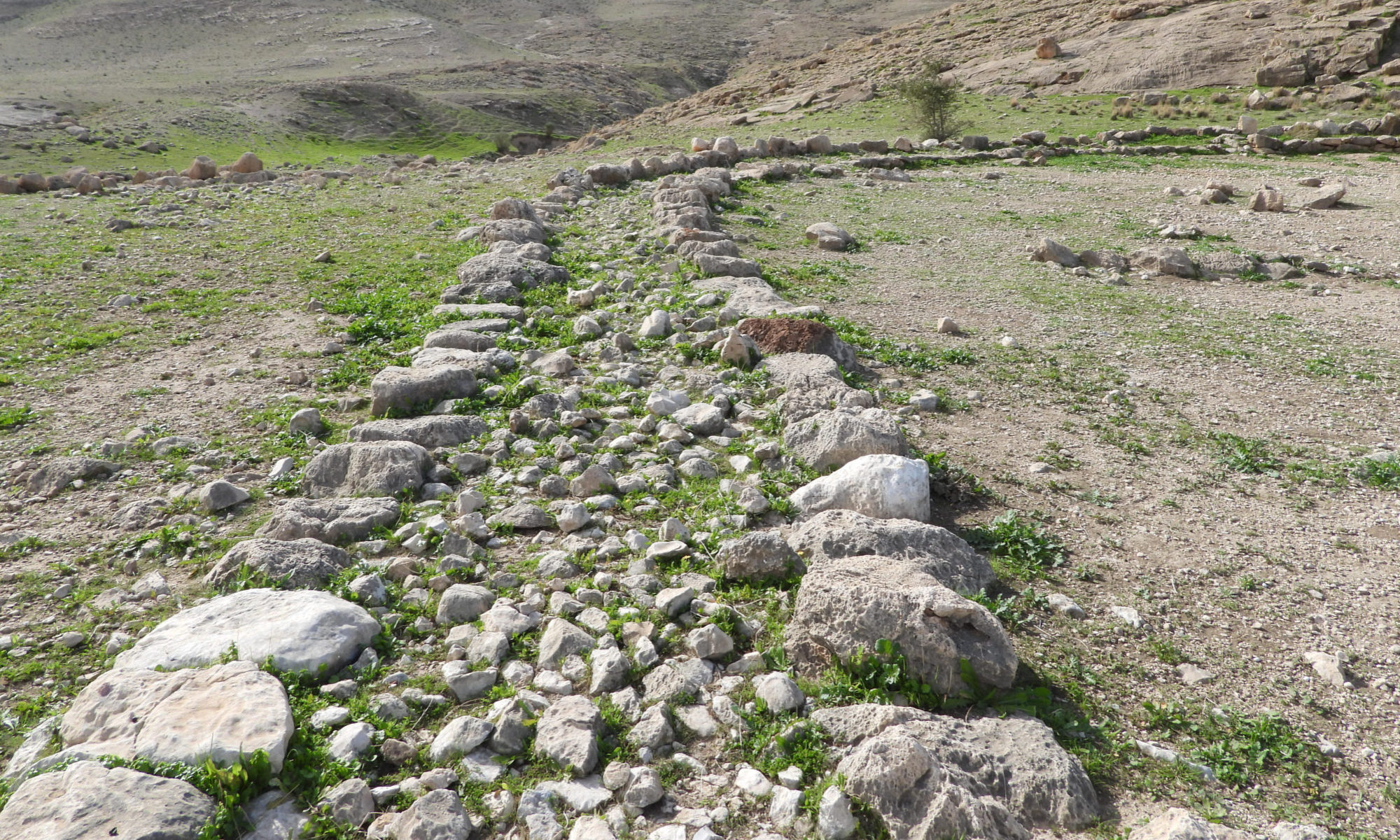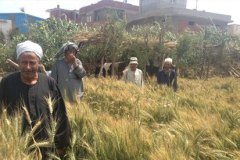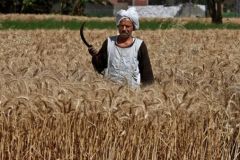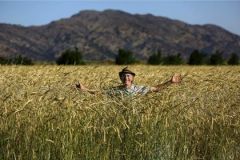Jos 5:10 And the children of Israel encamped in Gilgal, and kept the Passover on the fourteenth day of the month at even in the plains of Jericho.:11 And they did eat of the old corn of the land on the morrow after the Passover, unleavened cakes, and parched corn in the selfsame day.:12 And the manna ceased on the morrow after they had eaten of the old corn of the land; neither had the children of Israel manna any more; but they did eat of the fruit of the land of Canaan that year.
The law establishes the firstfruits offering is to be from the labor of the Israelites that they planted in a field.
Exo 23:14 Three times thou shalt keep a feast unto me in the year.:15 Thou shalt keep the feast of unleavened bread: (thou shalt eat unleavened bread seven days, as I commanded thee, in the time appointed of the month Abib; for in it thou camest out from Egypt: and none shall appear before me empty:):16 And the feast of harvest, the firstfruits of thy labours, which thou hast sown in the field: and the feast of ingathering, which is in the end of the year, when thou hast gathered in thy labours out of the field.:17 Three times in the year all thy males shall appear before the Lord GOD.
Did the Israelites plant the barley that was waiting for them the year they entered across the Jordan River? No, these barley fields were the labor and the firstfruits of the Canaanites. They were given to the Israelites by the hand of יהוה
Furthermore, the book of Ruth shows that the barley harvest took more than the day that was being mentioned in Ruth chapter two.
Rth 2:3 And she went, and came, and gleaned in the field after the reapers: and her hap was to light on a part of the field belonging unto Boaz, who was of the kindred of Elimelech.:23 So she kept fast by the maidens of Boaz to glean unto the end of barley harvest and of wheat harvest; and dwelt with her mother in law.
This barley was not harvested in a single day. Harvestable fields are a theory and not a fact.
Are ripened and nearly ripened fields of grains injured by the farmer walking in them?
Please take a look at the photos below the posts; the expert farmers speak for themselves.
https://www.khaleejtimes.com/…/egypt-says-tensions…
https://english.ahram.org.eg/…/Let-them-eat-vegetables…
https://www.latimes.com/…/la-fo-tehachapi-grain-project…
Is the rest of the field ignored by taking the aviv omer area?
Not according to the book of Ruth, which proves the harvest doesn’t happen in a day.
Rth 2:3 And she went, and came, and gleaned in the field after the reapers: and her hap was to light on a part of the field belonging unto Boaz, who was of the kindred of Elimelechn:23 So she kept fast by the maidens of Boaz to glean unto the end of barley harvest and of wheat harvest; and dwelt with her mother in law.
Or consider
Lev 26:4 Then I will give you rain in due season, and the land shall yield her increase, and the trees of the field shall yield their fruit. :5 And your threshing (of grains)shall reach unto the vintage, and the vintage shall reach unto the sowing time: and ye shall eat your bread to the full, and dwell in your land safely.
If it took 5 months to finish the threshing of the barley and wheat, how many days did it take to cut the harvest? Should the entire land delay the beginning of the year to allow the ingathering of harvestable fields of aviv barley to be gathered? How many months would they have delayed the start of the year to allow the harvestable fields to be gathered?
Does taking the early omer ignore the maturity of other barley fields in the region, Jordan Valley / Plains of Jericho, or all over Israel?
No. This is likely to be believed if someone is incorrectly looking for enough barley to feed a nation.
Can it rain in the first month of the biblical calendar?
Yes!
Jos 3:15 And as they that bare the ark were come unto Jordan, and the feet of the priests that bare the ark were dipped in the brim of the water, (for Jordan overfloweth all his banks all the time of harvest,)
1Ch 12:15 These are they that went over Jordan in the first month, when it had overflown all his banks; and they put to flight all them of the valleys, both toward the east, and toward the west.
The overflowing banks only happen if there is snow melt coming from Hermon and rain. Just like the images you see of the wadis around the Dead Sea that flow because of rainfall.
And as you have heard me say many times, if it’s cold, it’s been raining, or it is going to rain
Joh 18:18 And the servants and officers stood there, who had made a fire of coals; for it was cold: and they warmed themselves: and Peter stood with them, and warmed himself.
And yay for the rain that might happen next week!
Did a farmer have to decide alone about the readiness of his barley field?
No, there were indeed Levites who lived among the Israelites that could be called on to judge.
Deut 14:27 And the Levite that is within thy gates; thou shalt not forsake him; for he hath no part nor inheritance with thee.
Is barley needed before Pesach?
No, the Israelites that didn’t want to be cut off (Ex12:15) would plan to preserve some of the old grain from the previous year to eat during unleavened bread until wave sheaf day when the new firstfruits offering was waved.
Much as the pattern we see when we read about Shmitah when in the 6th year the grains were enough until the 9th year (Lev25:21-22).
Is the first flush of barley considered part of the crop or part of the harvest?
Yes,
The national geographic society defines a crop as:
“A crop is a plant or plant product that can be grown and harvested for profit or subsistence. By use, crops fall into six categories: food crops, feed crops, fiber crops, oil crops, ornamental crops, and industrial crops. Food crops, such as fruit and vegetables, are harvested for human consumption.
You lose the first fruits, you lose the early stalks, and so you lose part of the crop. There’s only one first anything else is a second.
The Taanit records that the earliest ripened fruit on the tree be marked so that it would not be overlooked in offering the first fruits from a tree. If the earliest fruit on a tree was guarded to be included in the firstfruits count, how much more would the earliest omer of the first flush be guarded against the beginning of the year
Harvestable fields of barley is a theory and not a scriptural fact.



